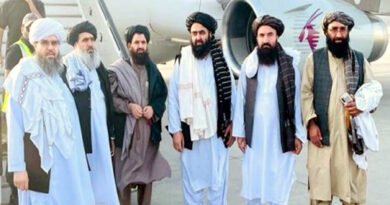What the invasion of Ukraine foretells
Beijing may or may not get closer to Moscow due to the impact of the invasion but India needs to be very careful along the border with China
Australian Prime Minister Scott Morrison’s recent statement that a “new arc of autocracy” was trying to reset the world in its “own image”, and his call to liberal democracies to fight the process, obviously referred to Russia and China. Shortly thereafter, Andrew Shearer, director-general of Australia’s Office of National Intelligence, Australia’s equivalent of the United States Office of the Director of National Intelligence and the United Kingdom’s Joint Intelligence Organisation, talked of a “troubling new strategic convergence” between Beijing and Moscow, and the risk of a “major power conflict” growing since Russia’s invasion of Ukraine. Chinese President Xi Jinping, he further stated, appeared to be planning to dominate the Indo-Pacific region and use it as a base to overtake the US as the world’s leading power.
Russia and China are autocracies with a significant measure of convergence in their global interests. The Sino-Soviet rift that began in the late 1950s and led to the Ussuri river clashes in 1969, is over. China and Russia are drawing increasingly closer to counter the US. There is, however, no evidence of their working together to produce an autocratic world. As for Russia’s invasion of Ukraine, while maintaining a tilt in Moscow’s favour, Beijing has tried to sustain an independent posture, perhaps both because of unhappiness about the invasion and a desire not to burn its remaining bridges with the West.
China’s President Xi Jinping reportedly told US President Joe Biden during their recent video conversation that his country did not want war in Ukraine, and described the invasion as “not something we want to see”. China’s Foreign Minister Wang Yi told the 58th Munich Security Conference (February 18-20, 2022), which annually debates current and future security challenges facing the world, that “the sovereignty, independence and territorial integrity of any country should be respected and safeguarded because this is a basic norm of international relations. It is consistent with the purposes and principles of the UN Charter and is the consistent position of the Chinese Government. Ukraine is no exception”.
Significantly, China has abstained from voting in the UN Security Council resolution condemning the invasion and did not oppose it. Russia had to veto it alone. It also abstained from voting in the UN General Assembly resolution demanding that Russia “immediately, completely and unconditionally withdraw all of its military forces from the territory of Ukraine within its internationally recognised borders”. Belarus, North Korea, Eritrea and Syria were the only countries joining Russia in opposing the resolution.
Whether the US is right in claiming that Russia has approached China for military and economic assistance in its invasion of Ukraine, remains to be seen. China and Russia have both denied it. China clearly does not want to attract the sanctions the West will impose on it if it helps Moscow buck the sanctions clamped on it. Under a 2017 law, the US can penalise foreign countries, companies and individuals trading with sanctioned countries. The West has made it clear that it means business. A recent report in The New York Times by Edward Wong and Julian E Barnes, titled “Russia Asked China for Military and Economic Aid for Ukraine War, US Officials Say”, has quoted Jake Sullivan, the US National Security Advisor, telling CNN, “We are communicating directly, privately to Beijing that there will absolutely be consequences for large-scale sanctions evasion efforts or support Russia to backfill them.”
According to a Bloomberg report, titled “China State Banks Restrict Financing for Russian Commodities”, the Industrial and Commercial Bank of China’s offshore units have stopped issuing dollar-denominated letters of credit for Russian commodities ready for export, and the Bank of China has also curbed the financing of trade in Russian commodities. Other reports say the sanctions imposed on Russia include the exclusion of some Russian banks from the ambit of the Society for Worldwide Interbank Financial Telecommunication (SWIFT) agency. Can Russia escape the move’s impact with the help of Cross-Border Interbank Payments System (CIPS) launched by China in 2015 as a settlement and payments clearing system for its Yuan-denominated trade with countries abroad? Its volume of transactions, however, constitutes only a miniscule fraction of SWIFT’s, and is unlikely to increase fast enough to be of help to Russia.
How would the invasion impact Sino-Russian ties? Wang Yi has described these as “rock solid”. Nevertheless, the Kremlin may feel angry if China cannot help it to the extent it wants. Equally, China may wonder about moving closer to Russia, fearing the possibility of the latter igniting another conflict that may severely damage Beijing’s interests, and even trigger a global nuclear holocaust.
Meanwhile, India must bear two possibilities in mind. One, China may try to grab more of its territories by taking advantage of the world’s preoccupation with Ukraine. Two, it may favour discretion, seeing Russia’s poor progress, losses and casualties, and remembering the bravery and fighting skills Indian soldiers have consistently displayed. India has to be ready for both. As Col Anil Bhat (Retd) persuasively shows in his book China Bloodies Bulletless Borders (Pentagon Press LLP), we have paid a heavy price in the past for not being sufficiently alert and prepared.
(The author is Consulting Editor, The Pioneer. The views expressed are personal.)
Source: The Pioneer




